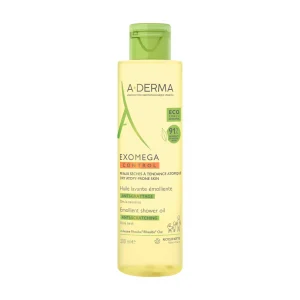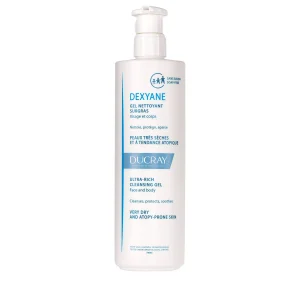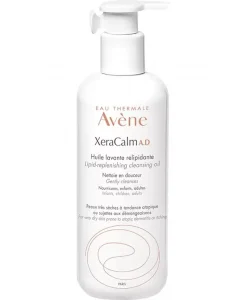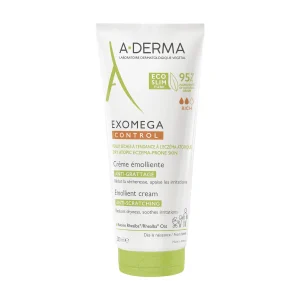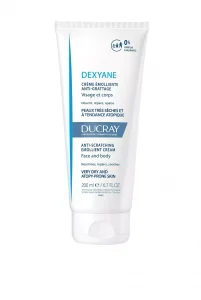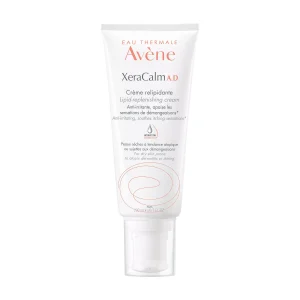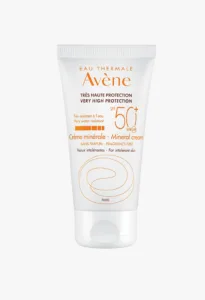
Embarking on a journey to find effective eczema treatments can often feel like navigating an unpredictable maze of discomfort and frustration. The itching, redness, and inflammation can be never-ending, leaving you desperately searching for a ray of hope. Read this article in collaboration with the dermatologist Dr. Shaimaa Abdul Mujed to discover a world where relief, clear skin, and restored confidence are no longer distant dreams, but realities within reach.
How does eczema affect you?
Eczema symptoms can vary from person to person, depending on the type of eczema. Most types of eczema tend to cause dry skin, itchy lesions, and rashes. Different types of eczema usually show signs of scaling, oozing, or crusting on the skin.
Rashes can vary according to skin color. Darker-skinned people may experience ashen, gray, brown, or purple rashes, while lighter-skinned people may notice red or pink rashes.
In general, eczema sufferers present the following symptoms (1):
- Dry skin
- Severe itching, especially at night
- Small, fluid-filled bumps that may drain and crust over after scratching
- Thickened, cracked, or scaly skin
- Raw, sensitive, and swollen skin due to scratching
What triggers eczema flare-ups?
Here are some of the most common factors that can aggravate symptoms: (2)
1- Scratching
Eczema causes severe itching. It’s hard not to scratch. Sometimes you scratch until you bleed, which can lead to infection and worsen skin symptoms. Before you know it, you’re in a cycle of itching and scratching.
2- Hot water
A long, steamy shower or bath may seem tempting. But hot water worsens eczema symptoms by drying out your skin.
3- Cold, dry temperatures
If you suffer from eczema, your skin is already dry. Cold weather and low-humidity climates wrap your body in extra dryness, which can exacerbate itching. Sometimes, the change of season can also trigger symptoms.
4- Stress
Although emotional stress is not the cause of eczema, it can exacerbate its symptoms. And dealing with itchy flare-ups can in turn stress you out.
5- Sweating
Sweating is the body’s natural way of cooling itself. But when sweat evaporates, it can dry out your skin and leave a salty residue that can aggravate eczema. If you’re suffering from a flare-up of eczema, it’s best to avoid sweaty workouts and reduce their intensity, or opt for low-impact exercises.
6- Soap, shampoo, and bubble bath
Many personal care products can irritate eczema-sensitive skin, depriving it of the natural oils that keep it moist. To avoid drying out your skin and aggravating your symptoms, use cleansers only when necessary, and don’t use bubble bath products (as they often contain fragrances). If you do use a cleanser, choose one with non-irritating ingredients to help repair the skin barrier.
7- Perfumes and preservatives
Dyes and fragrances can be highly irritating to sensitive skin, causing a flare-up of eczema symptoms. To identify skin-friendly products, look for the words “hypoallergenic” and “dye- and fragrance-free” on the label.
8- Chemical sunscreens
Chemical sunscreens contain active ingredients that absorb ultraviolet (UV) light. The problem is that these ingredients can irritate sensitive skin, especially eczema and rosacea sufferers.
To stay out in the sun without exacerbating eczema symptoms, opt for physical sunscreens (also known as mineral sunscreens), which contain ingredients such as titanium dioxide and zinc oxide that work by deflecting UV rays. These products sit on the skin and are not absorbed.
9- Wool and synthetic fabrics
Some fibers are more irritating to the skin than others. Wool is notoriously prickly, and many synthetic fabrics are too abrasive for the skin. Cotton clothing and bedding are generally recommended for people with atopic dermatitis, as cotton is cool and breathable. Bamboo is another eczema-friendly fiber.
10- Pollen, mold, and dust
Many environmental allergens can aggravate skin symptoms, such as pollen, mold, and dust.
What are eczema treatments?
There is as yet no cure for eczema. However, there are many treatment options to help you manage and reduce symptoms. Dr. Shaimaa Abdul Mujed states that the doctor can determine eczema treatments based on the degree of eczema, the type of eczema, and the patient’s symptoms and signs.
Here are some common treatments for various types of eczema: (3)
1- Cleansers
For eczema sufferers, washing removes dead skin cells and bacteria from the skin’s surface and replenishes moisture levels, alleviating dryness.
When cleansing the skin, you should consider the following tips:
- Use lukewarm, not hot, water.
- Avoid rubbing, as this can aggravate eczema.
- Keep baths and showers short.
- Dry skin by patting gently with a clean towel, rather than rubbing.
It’s also important to use gentle cleansers that are suitable for eczema-prone skin. This means choosing products that
- are fragrance-free
- do not contain harsh soaps or surfactants
Our selection of products:
A-Derma Exomega Control Emollient Shower Oil
Ducray Dexyane Ultra-Rich Cleansing Gel
Eau Thermale Avène XeraCalm A.D Lipid-Replenishing Cleansing Oil
2- Moisturizers
Reducing skin dryness can help manage eczema. This requires regular moisturizing, usually twice a day. Moisturizers often come in the form of ointments, creams, or lotions.
Look for moisturizing creams that contain Vaseline, and avoid those that contain preservatives (such as parabens) and artificial fragrances, which can be potential allergens or irritants. Also, creams that contain natural oils such as ceramides, can help protect your skin’s outer layer.
Our selection of products:
A-Derma Exomega Control Emollient Cream
Ducray Dexyane Anti-Scratching Emollient Cream
Eau Thermale Avène XeraCalm A.D Lipid-Replenishing Cream
3- Sunscreen
Eczema-prone skin is often sensitive and more vulnerable to sunburn. Sunburn can aggravate eczema symptoms and trigger flare-ups. Applying sunscreen with a high sun protection factor (SPF) helps protect your skin from harmful ultraviolet (UV) rays and reduces the risk of sunburn.
Our product selection:
Eau Thermale Avène Very High Sun Protection Mineral cream SPF50+
4- Medication for inflammation and itching
Several prescription and over-the-counter medications are available to reduce flare-ups and skin inflammation. Medication options include topical corticosteroids, antihistamines, and phototherapy. Dr. Shaimaa Abdul Mujed indicates that phototherapy is a type of light with a specific wavelength that helps reduce the itching and erythema of eczema.
Conclusion:
With effective eczema treatments, people can say goodbye to the constant itching and discomfort associated with this condition. By adopting the above simple strategies, you can find relief and lead a comfortable life. Avoiding triggers and seeking the advice of a dermatologist can improve the effectiveness of treatments. Remember, you don’t have to suffer in silence – the power to say goodbye to itching and hello to comfort is at your fingertips.
Last Updated on February 16, 2024
